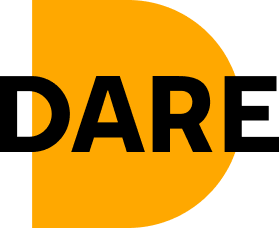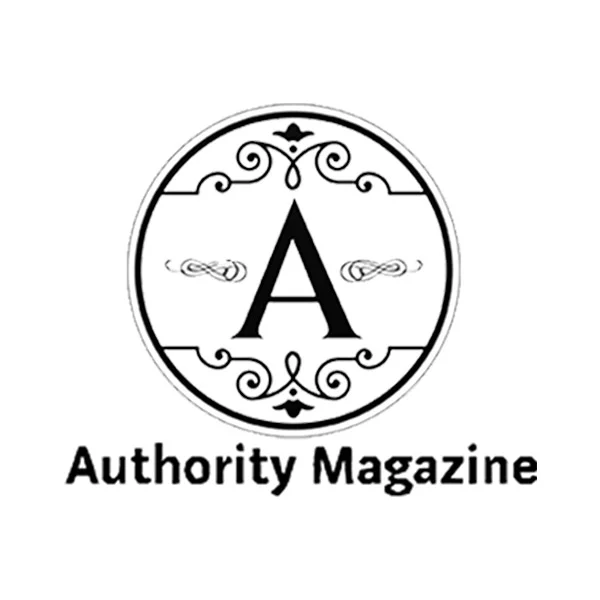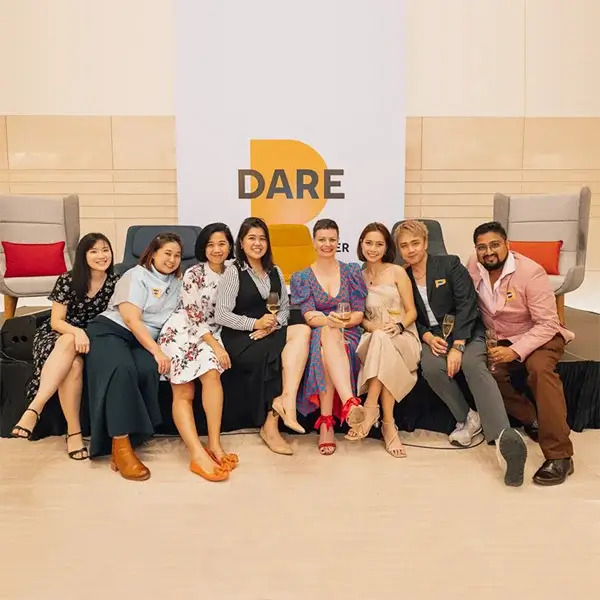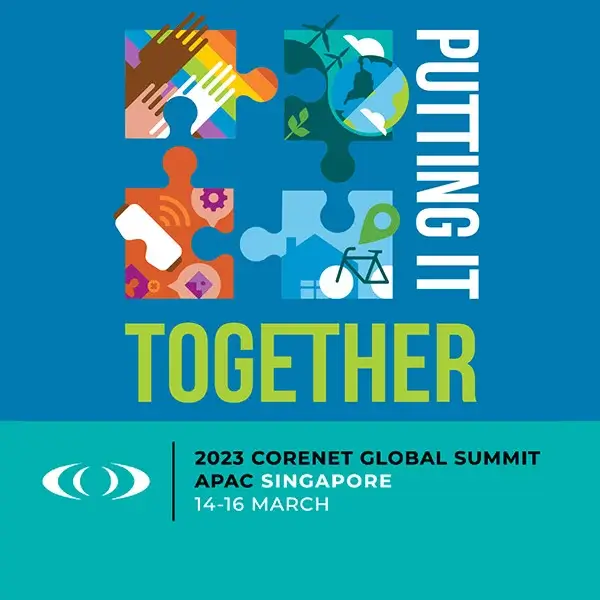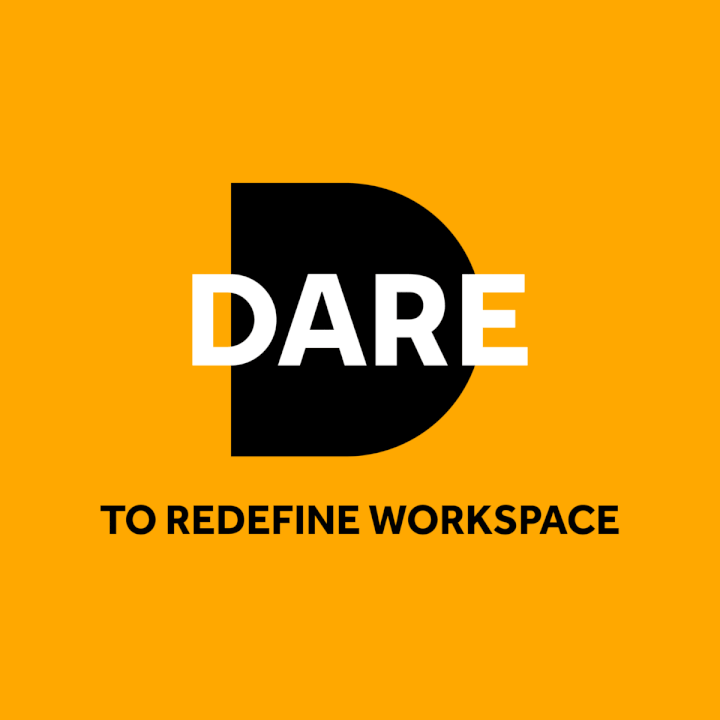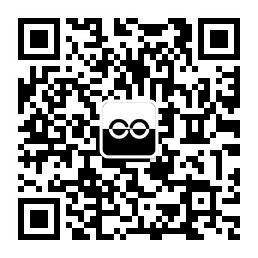New ways to evaluate, measure performance and define success. We are starting to see the green shoots of employers putting more emphasis on employee comfort in a space than on the cost of creating that space. This is starting to redefine what we consider to be a good workplace. Accreditation schemes like Well put more emphasis on a healthy environment being a better measure of success than a cost effective one. Are we going to see this trend expand into how we evaluate employees and companies’ performance, how as a society we define success? I am looking forward to how this might evolve.
When it comes to designing the future of work, one size fits none. Discovering success isn’t about a hybrid model or offering remote work options. Individuals and organizations are looking for more freedom. The freedom to choose the work model that makes the most sense. The freedom to choose their own values. And the freedom to pursue what matters most. We reached out to successful leaders and thought leaders across all industries to glean their insights and predictions about how to create a future that works.
As a part of our interview series called “How Employers and Employees are Reworking Work Together,” we had the pleasure to interview Larissa Murphy.
The Vision Creator from Contrast Design. Larissa Founded Contrast with her Business Partner Ivy Chiam in 2015. Together they were on a mission to eradicate soul-destroying workplaces, by designing for the people that occupy them.
Since founding the business in 2015, Larissa has led the vision to create experiential working environments that respond to people’s needs. Abandoning the old approach, which was a numbers game, in which the success of a workplace was measured by real estate and financial teams and based on space and cost efficiency. Larissa believes that a successful office should be measured by employee’s enjoyment of the space, their comfort and the quality of the business output generated by the people enjoying the space. Larissa’s vision for workplaces that people loved and wanted to spend time in went against the grain pre pandemic, now it is what is aspired to.
Larissa believes in bringing knowledge from many disciplines to enhance the places where we work. As well as being a Designer, a founder of Contrast and a mom of 2. She is also passionate about psychology and guest lectures at NTU in Singapore on this subject.
Thank you for making time to visit with us about the topic of our time. Our readers would like to get to know you a bit better. Can you please tell us about one or two life experiences that most shaped who you are today.
I have tried very hard to think of one or two life experiences, that most shaped who am today, but I simply cannot limit it or define it in this way. My whole life has shaped who I am today. Every day is new and filled with new experiences, each of them impacting me and changing me a little. Every time I meet new people, hear their points of view, they have the power to change mine, every day I work with a wonderful team of people, who along with my clients constantly challenge me and make me question everything. My children ask me every day WHY? And expect an explanation, even when I don’t have one to give, they constantly force me to think. Everything I read and every piece of knowledge I gain, all of it has shaped me, and continues to do so. I will not be the same tomorrow as I am today, neither will the world. I look forward to this ongoing journey.
Let’s zoom out. What do you predict will be the same about work, the workforce and the workplace 10–15 years from now? What do you predict will be different?
In 10–15 years from now I am optimistic that workplaces and the workforces that inhabit them will be very different to how they currently are. In my opinion, what will remain unchanged is that most companies will still have an office, most employees will still go to the office each week and most businesses will want their staff to come to the office regularly. In terms of the workforce, we will still be mostly human and will all still need face to face interaction with others.
However, far more exciting is what will change. In my view the workplace will evolve into a “Workspace” that will be in part a physical space but in part a digital space. The workforce will have the freedom and flexibility to work across both. There will be less jobs of a processing nature as these will be replaced with machines, which can achieve higher levels of productivity. People will be in roles that require greater creativity, responsiveness, quick thinking, and innovation. Workstyles and working hours will change to support this. The type of space that supports human productivity will be different in nature to the type of space that supports human creativity, so our physical workspaces will change. They will be spaces where people come to do the work they cannot do elsewhere. This will mean more spaces for both face to face interaction and isolation. The soulless sea desks in rows (whether cubicles or benches) will be banished to the past. Physical workplaces will be far more appealing spaces to spend time in.
What advice would you offer to employers who want to future-proof their organizations?
Organizations need to start valuing their people as individuals and stop seeing them collectively as “the staff.” People perform at their best when they are both happy and comfortable. However, happiness and comfort are not universal, the idea that one size fits all, that one policy works for all, will not work in the future. The uniformity approach worked in driving efficiency, driving creativity will require an approach that is more tailored to the individual. In terms of policies this will mean greater flexibility in terms of spaces it will require greater variety.
What do you predict will be the biggest gaps between what employers are willing to offer and what employees expect as we move forward? And what strategies would you offer about how to reconcile those gaps?
I think many employers are still quite firmly attached to the metrics of the productive era, with the systems and processes driven by the efficiency of uniformity. Whether it is a standard HR policy, A fixed template for an employment contract, fixed working hours, standard annual leave allocations or working environments with standardised desks and chairs for all, employers love standardization. The perception being, that it made managing employees easy and effective. It will be hard for many organisations to abandon this.
Employees no longer want to be treated like the components of a machine. Employees want to be valued, recognised for their unique contribution. They want to be seen as an individual and they want employers to cater to their individual needs. In some industries there are employers who are going to struggle with this. However, I have spoken to many employers who have a growing awareness, especially in the tech industry where the talent crunch and competition for creative employees are really starting to bite. They recognise that they can no longer dictate to employees.
Several clients have asked me the same question, they say “we want people to come to the office every day but we cant force them to, how do we make the office a place that they want to come and spend time in?” This is the first step in reconciling the gap, understanding what people want, not just what employees need, but thinking about what they like. Companies can undertake personality profiling for their employees to gain a better understanding of their workforces’ preferences. We can engage with employees and ask them what they like and dislike. We can deploy workplace analytics systems that allow us to see space utilisation patterns. These can inform us on what spaces are popular and which ones nobody uses. HR teams can rethink and relax their policies, as can office and facility managers. Across the board employers need to be prepared to offer far greater flexibility and focus on the happiness of the employee rather than the efficiency of the system.
We simultaneously joined a global experiment together last year called “Working From Home.” How will this experience influence the future of work?
This is having a huge impact on the future of work. Prior to “working from home” becoming normalised, people were fearful of change in the workplace. Managers were fearful of the impact of any change on their ability to manage effectively. Employees were fearful of their ability to adapt and be successful when confronted with change. Yet, how we all work, interact, and do business changed almost overnight. We survived, in some cases we even became better, more productive, and more creative. Businesses survived, in fact many businesses thrived, and some new businesses emerged. All this has shown us that change can be great, it should not be feared. Therefore, I feel the workforce are now more empowered, braver, ready to experiment, try new things, new workstyles and be excited about the future. I believe that the pandemic has acted as an accelerator for change, the slow evolution of the way we work has become more of a revolution. I think this is just the start of greater change to come and businesses and people are now more prepared to take change in their stride and even drive it.
We’ve all read the headlines about how the pandemic reshaped the workforce. What societal changes do you foresee as necessary to support a future of work that works for everyone?
The pandemic is only one element of what is reshaping the workforce. I see the pandemic as an accelerator for the changes that were happening at a slower pace. We are currently in a period of transition from one major financial era to another. We have slowly been moving from the Industrial age to the Information age. When we transitioned from the agricultural age to the industrial age, our focus moved from subsistence to productivity. Now, our focus must shift from productivity to creativity. This will require huge societal change, to support a future of work where creativity is what drives return on assets. In the era of productivity many of the traits associated with creativity were frowned on. These traits will now become sought after. What we perceive as successful will need to change. What we consider normal will need to be expanded. How we measure performance and assess people’s ability will not be the same. We will have to re-think how we manage people. In a recent conversation with a group of organizational psychology students we discussed how our old systems of tests, evaluations and classifications may no longer work in the era of creativity. What will work has yet to be defined. The future of work will need to be far more inclusive and we should anticipate that our definitions and expectations will be challenged.
What is your greatest source of optimism about the future of work?
My sense of adventure, my overwhelming excitement about the potential in the future is my greatest source of optimism. Anything is possible, if we can dream it, it can exist. I have spent my entire career dreaming of creating better environments for people to work in, trying to convince others of the importance of the impact of the environment we put people in, on their overall performance and subsequent business output. Now I feel these ideas are starting to gain traction and be taken seriously. I have long advocated the idea of a deskless office, where people are liberated from the constrains of the conventional workplace. I believe that we are all unique and each of us have the potential to contribute. However, the way we have measured success in the productive era and the narrow definitions of what is normal or acceptable, in the context of a world of work driven by efficiency, have limited the potential of so many. I am optimistic that the future of work will be way more inclusive and diverse. Even more exciting, is that the future of work and more specifically the workspace, may not be subject to the constraints of the physical world. The creation of Phy-gital workspaces opens limitless possibilities. How is it possible not to be optimistic about the future of work?
Our collective mental health and wellbeing are now considered collateral as we consider the future of work. What innovative strategies do you see employers offering to help improve and optimize their employee’s mental health and wellbeing?
To date I haven’t seen employers offer anything truly innovative in terms of improving mental health and wellbeing in the office. While I believe that employers can try to reduce stress on individuals by lightening their workload, providing greater flexibility and providing a better environment with access to natural light and views, surely these are pretty basic fundamentals. Some organisations go a little further, provide gyms, an onsite counselor, games areas, relaxation areas etc. While these may help people feel better I think organisations need to do more culturally.
It would be wonderful if we stated to view people displaying emotions in the workplace as normal or even positive instead of taboo. Why is it considered embarrassing if we whoop with joy because we’ve just solved a challenging issue or even more embarrassing to cry because we can’t solve a problem? Letting emotions out can help release the build up of stress, to not be judged for doing so will significantly lessen self-doubt and insecurities. It could also help increase the feelings of acceptance and comfort. Employers need to allow people to be themselves and we must all learn to judge our colleagues less. The pressure to conform can be immense. I recall many years ago in London when the office was a place where people wore suits. The company I worked for introduced a dress down Friday. I noticed that one of my colleagues was often sick or on holiday on Friday. One evening over a drink I asked why he never came to the office on Fridays, and he confided in me that it was because he did not know what to wear. He was scared that colleagues would judge him on Fridays. So, the policy that was designed to create a more relaxed atmosphere was actually causing some people more stress. I told him to just come in wearing a suit if that made him feel better, but he said he would be judged for that too. Some people are very susceptible to others’ opinions and feel they have to behave a certain way at work. This is not healthy or sustainable in the long term, we need to break down this culture of conformity and encourage greater freedom of expression without fear to truly tackle mental health in the workplace. We should feel as comfortable, laughing, crying or jumping for joy in the workplace as we would at home. Work should give us all the opportunity to enjoy being who we are and what we do.
It seems like there’s a new headline every day. ‘The Great Resignation’. ‘The Great Reconfiguration’. And now the ‘Great Reevaluation’. What are the most important messages leaders need to hear from these headlines? How do company cultures need to evolve?
The global pandemic has had such a huge impact on humanity and how we think. I believe it has increased the value we put on how we spend our time. Once we overcame the initial wave of shock and fear, we adapted to new ways of working. For many this was the first opportunity they had to take control of how, when and where they worked, as well as to question why they were doing it. This was empowering, not being tied to a fixed routine, allowed so many to achieve a better balance in their lives. In surveys and studies that have been undertaken in relation to peoples view of the future of work, less than one-third of employees are planning to resume their former work routine when their office reopens. This does not mean that they do not want to return to the office, it means that they do not want the routine. This is part and parcel of our transition into the creative era. The fixed routines and working hours belong to the productive era when we constantly strived to increase productivity. Pre pandemic the advancement in technologies allowed us to work in more flexible ways, but we were still attached to our obsession with productivity, so we maintained the “productive” regular routines and working hours. However, mobile technology meant that work was no longer being limited to the fixed hours and it was encroaching into people’s personal time. This meant that many employees were feeling tired, exhausted, burnt out, stressed and unable to switch off, this was benefitting nobody, returns were falling. Change was on the horizon; the pandemic has just brought it closer.
As part of the transition to a new financial era we can expect disruption, changes to how we think, work, and behave. The era when organisations needed an obedient, conforming, highly productive workforce is dying. Organisations now need workforces that question and challenge everything, that break the rules, innovate and are highly creative. Leaders need to recognize this change. Company cultures are created by the people. As the workforce becomes more empowered, less authoritarian and hierarchical, leadership still has a place but more to guide and shape, rather than to dictate. Leaders can shape company cultures and they need to do so by being open to being challenged, by encouraging curiosity and questioning. When I learnt to ski in my 20’s I likened the experience to going back to being a toddler learning to walk. As an adult it was so alien to me to keep falling over, to not be able to get back up, and to have to wait for someone to pick me up. I had to give up trying to be an adult, trying to appear like I was in control and knew what I was doing. I had to return to the mindset of a child and learn a new skill, a new way forward. Similarly with work and company culture, it may seem alien to us to want employees to challenge their bosses and disregard the rules, but we have to take on the mindset of a child and learn a new way to work.
Let’s get more specific. What are your “Top 5 Trends To Track In the Future of Work?”
- THE CREATION PF PHY-GITAL WORKSPACES. This is more a prediction of what we need than a trend. As it is unlikely that most office workers will return to the office full time we will need to think of the workplace as more than just a physical space. We will need to create digital places that align the experience of remote working with the physical experience of office working. This trend is well underway in the retail sector where most shops curate a digital shopping experience that is aligned with the experience of shopping in their physical stores.
- THE TRANSITION FROM EFFICIENT ENVIRONMENTS, POLICIES AND SYSTEMS TO SUPPORTIVE ENVIRONMENTS, POLICIES AND SYSTEMS. As the pandemic has made us turn a corner faster than we have expected we are starting to see a growing awareness that that providing a good remuneration and benefit package for employees is simply not enough anymore. This is leading to a trend where employers are starting to think what more can we offer? A great place to work, greater flexibility to support employees’ personal needs, consideration for overall employee wellness etc. this trend will continue to grow with environments, policies and systems growing in flexibility to become more supportive of employees.
- A SHIFT IN FOCUS FROM UNIFORMITY TO INDIVIDUALITY AND DIVERSITY. This trend is well underway, most modern workplaces are moving away from being nothing more than rows of desks/cubicles with a reception and some meeting rooms. The trend for diversity of space typologies advanced significantly with the implementation of activity based or agile workplaces. I see this trend as growing further so that workplaces have increasingly fewer rows of desks, maybe even none at all. Maybe it will get to the point that employees can be significantly more involved in creating the space they work in, as well as their work patterns and company work policies.
- NEW WAYS TO EVALUATE, MEASURE PERFORMANCE AND DEFINE SUCCEES. We are starting to see the green shoots of employers putting more emphasis on employee comfort in a space than on the cost of creating that space. This is starting to redefine what we consider to be a good workplace. Accreditation schemes like Well put more emphasis on a healthy environment being a better measure of success than a cost effective one. Are we going to see this trend expand into how we evaluate employees and companies’ performance, how as a society we define success? I am looking forward to how this might evolve.
- PHYSICAL WORKSPACES THAT ARE DRIVEN BY THE QUALITY OF EXPERIENCE THEY PROVIDE RATHER THAN THE COST OF PROVIDING THEM. On a recent project we were engaged by the country manager and talent director to look at their existing space and determine what could be improved. When we presented our proposal for improvements, it was met with resistance from the finance director, who could not see the value in the proposal. He felt strongly that it was not worth spending money on improving the work environment. This view changed when presented with the employee wide survey findings; that although 60% of employees said they were happy with their current job, 50% said they were planning to leave in the next 12 months and of these 90% said that the work environment would be an important or very important factor in this decision. Suddenly when the cost of replacing 50% of the workforce in a 12-month period was taken into consideration the cost of improving the work environment became almost insignificant. As employees now have a choice of where to work, but having employees come to the workplace has proven benefits, companies may see these benefits as more important than cost. Let’s hope so…
I keep quotes on my desk and on scraps of paper to stay inspired. What’s your favorite “Life Lesson Quote”? And how has this quote shaped your perspective?
I keep blank sheets of paper on my desk, to remind myself of the endless possibilities and potential for the future. I find inspiration staring at a blank sheet, filled with uncertainty, lack of knowledge and a future that is not yet defined. I see words and lessons from the past as things that I may need to unlearn so that I can see things from a new perspective. I am inspired more by what I do not yet know, than I am by what I have learned so far.
We are very blessed that some of the biggest names in Business, VC funding, Sports, and Entertainment read this column. Is there a person in the world, or in the US, with whom you would love to have a private breakfast or lunch, and why? He, she, or they might just see this if we tag them.
I think I would most like to have lunch with an alien from another civilisation, that is totally different from ours so that I could learn new ideas, different approaches, and perspectives. However, if I limited to choosing to have Lunch with a current inhabitant of this planet then it would have to be Roger Penrose, I like how his career evolved by doing things unrelated to what he should be doing, I also like how his work transcends disciplines that we may not normally consider as being connected and raises interesting questions. I also love theoretical physics, it is the exploration of what we don’t yet know and trying to figure it out that enchants me, there is no right or wrong just ideas and opinions.
Our readers often like to continue the conversation with our featured interviewees. How can they best connect with you and stay current on what you’re discovering?
They can connect with me through LinkedIn where I regularly post thoughts and ideas.
